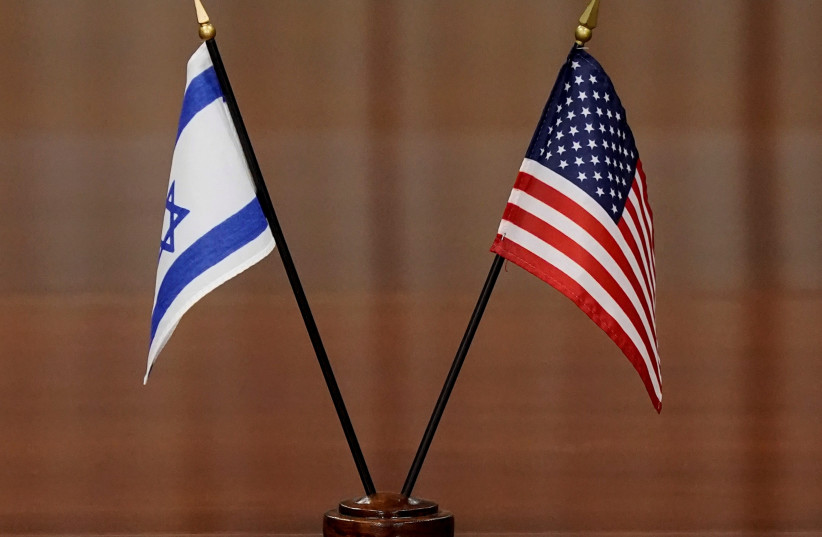WASHINGTON – On Monday, US Ambassador to Israel Tom Nides announced that Israel “has made one huge step” towards its inclusion in the US Visa Waiver Program, by hitting the 3% or less mark of American refusal to its requests for non-immigrant visas.
Many consider this step as the most important hurdle for eligibility. “With achieving the visa refusal rate under 3%, Israel is closer than ever before to be included in the program,” said Scott Lasensky, a former US diplomat in Israel now involved in US-Israel educational exchanges.
“Yesterday was a big announcement,” said Lasensky, who has researched the topic extensively. “Only when I served at the embassy in Israel did I fully appreciate not just the technicalities, but how broadly impactful this is around Israeli society,” he said.
The refusal rate was much higher and it's been a very long road to get to this place, he said. “Getting under 3% was something some people didn't expect would ever happen.”
He went on to say that it's been the hardest challenge for the Israeli government, because it's not in their control. “The rate is produced by the interaction of Israeli citizens and US visa officers,” said Lasensky. “All the other measures are actions for the Israeli government to take for the Israeli Knesset -there's a certain degree of control.”

Refusal rates declining
What contributes to the decline of refusal rates?
“It's been a combination of US embassy public information campaigns in Israel to get Israelis to file more accurate applications, alongside cultural sensitivity training of US visas to consular officers, particularly in cases like recently discharged army soldiers who need to prove they're anchored in Israel.”
What are the remaining hurdles?
“The are two significant hurdles. First, there is some data sharing and information sharing that apparently requires Knesset legislation. The whole visa waiver program is a post-9-11 program. And it involves other countries sharing a lot of data about travelers before they travel. And in exchange, there's this easier system of travel.”
“We're talking about lots of different populations here, Palestinian Americans, children of Palestinian Americans, Arab Americans - there are different issues at play, but it all comes down to this one condition of reciprocity.”
Scott Lasensky, a former US diplomat in Israel
Another hurdle is that the US seems to put a big emphasis on reciprocity, he said. “It means equal treatment or reciprocal privileges,” said Lasesky. “The DHS mantra is “blue is blue,” which means that every American passport is treated the same. As it relates to Palestinian and Arab Americans, some of whom - not all - face travel obstacles.”
“We're talking about lots of different populations here, Palestinian Americans, children of Palestinian Americans, Arab Americans - there are different issues at play, but it all comes down to this one condition of reciprocity.”
He said that it is yet to be announced what mechanism would be used to verify that indeed reciprocity has been achieved.
“I'm particularly focused on people-to-people issues because of my work since I left government and I know that this is a big drag on many programs such as community twinning, camps, sports, and Maccabi,” he said. “There's a list of dozens of, if not hundreds of small exchange programs.”
Asked whether he was optimistic about the prospect of including Israel in the list, he said: “Absolutely. But it's going to take focus. There were many rounds of elections and just a lack of focus by the Israeli government on getting what needs to get done.”
“On top of the fact that Joe Biden is the first president to ever talk about the issue publicly, Tom Nides has been working on it since the time he got there,” Lasensky said. “So there's both a lot of top-level interest, and there's progress on the technical issues.”
